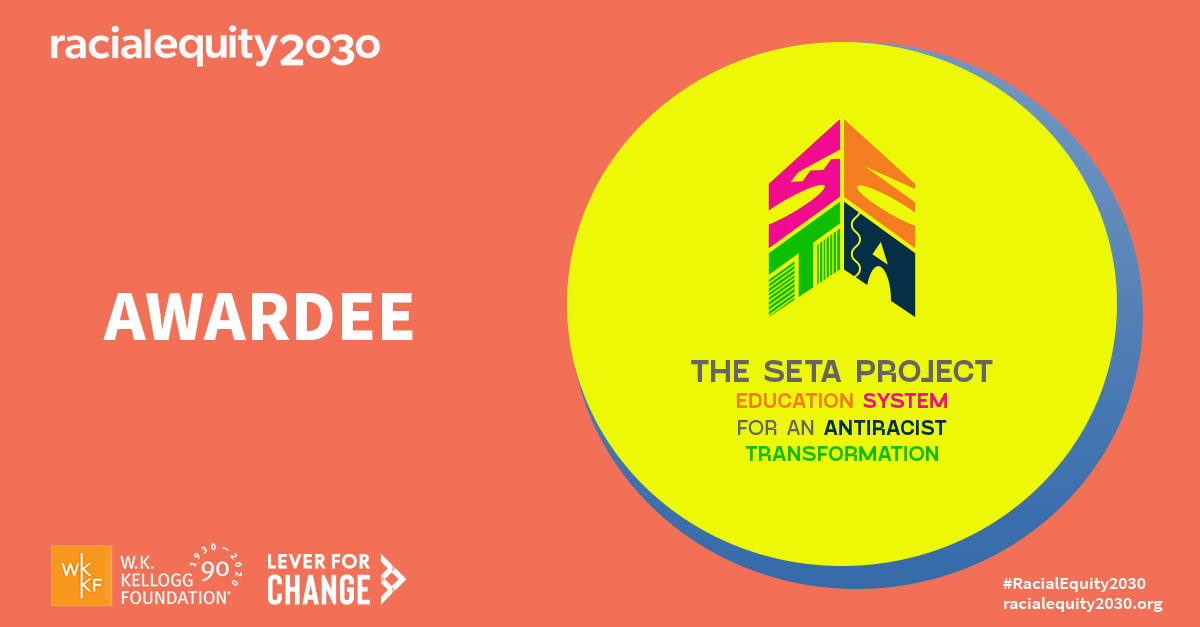On May 31, 2023, the SETA Project, an initiative whose goal is to transform the Brazilian public school network into an ecosystem of anti-racist social quality, will participate in the meeting Building paths for anti-racist education as a restorative justice approach: challenges and opportunities.
The ceremony is part of the agenda of the second edition of the Permanent Forum of Afro-descendants, a UN event that will take place at Columbia University in New York and will gather states, human rights institutions, and civil society representatives. The international agenda is a partnership between the SETA Project, led by ActionAid and six other civil society organizations: the Center for the Study of Labor Relations and Inequalities – CEERT, the Consulate General of Brazil in New York, the Getúlio Vargas Foundation’s Center for Research on Racial Justice, Peregum Black Reference Institute, and the Whiteness Observatory.
Ana Paula Brandão, project manager and programmatic director at ActionAid, and Dandara Oliveira, articulation and project specialist, will represent SETA at the event.
Ana Paula said:
“Our participation will be an opportunity to discuss the strategies and the relevance of guaranteeing the right to contextualized, quality, and equitable education for black, indigenous, and quilombola people, as guaranteed by the specific legislation, although it still suffers in its implementation.”
Dandara shared that it is important for SETA to participate in events like these because they are spaces where it is possible to discuss globally the issues that affect the Afro-descendant population, besides sharing the project’s learning and methods with several countries.
Douglas Belchior, the co-founder of UNEafro BR, an organization that is also part of the SETA alliance, highlighted that participating in the Forum is an opportunity to give visibility internationally to students who belong to minority groups, the most fragile ones in the Brazilian educational system, and to think about strategies to promote affirmative actions in Basic Education.
Thiago Amparo, coordinator of the Racial Justice and Law Center at Fundação Getúlio Vargas, believes that it is also important to stress internationally that anti-racist commitments are fundamental but still insufficient.
“We need policies, with resources and explicitly defined goals, to reduce racial inequalities and provide minimal reparation to black communities, who also pay in their lives for racism.”
FManuela Thamani, co-executive director of the Whiteness Observatory, highlights that she hopes the event will be a platform to openly discuss the issue of racial inequalities in its amplitude but also consider the specificities of each country and each region.
“I sincerely hope that diverse voices are valued and that perspectives and experiences of people of African descent are heard, but also that we do not forget the role of whiteness in this cruel process of inequality.”
